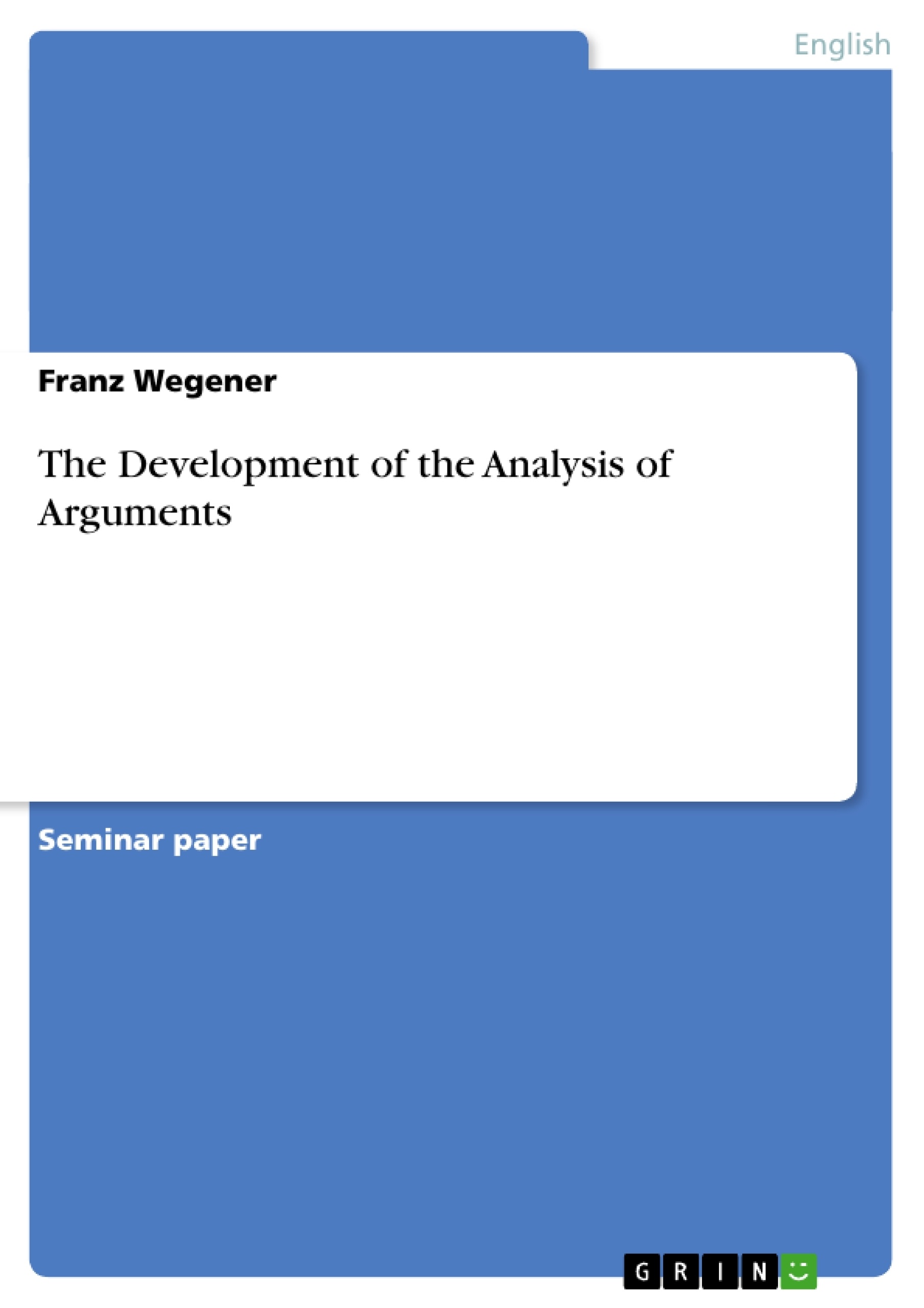The following paper describes in detail the development of logic from syllogisms via propositional and quantified predicative logic to componential analysis. It gives an insight in how the systems of logic work and how they are applied to the analysis of arguments. It offers practical examples of how and when to use them and provides exercises for a deeper understanding. Furthermore, it discusses the advantages, disadvantages, and limitations of each system and finally combines componential analysis with the other systems to create a unified tool for the examination of arguments
Inhaltsverzeichnis (Table of Contents)
- Introduction
- The Development of the Analysis of Arguments
- The ancient approach of quantified sentences
- Propositional logic
- The analysis of the validity of arguments in propositional logic
- Limitations of propositional logic
- Quantified predicative logic
- Componential Analysis
- Problems of Componential Analysis
- Conclusion
Zielsetzung und Themenschwerpunkte (Objectives and Key Themes)
This essay explores the development of argument analysis, tracing the evolution of various approaches from Aristotle's classical framework to modern systems. The author aims to outline the strengths and limitations of each stage in this historical progression.
- The historical evolution of argument analysis
- The development of logical systems for analyzing arguments
- The strengths and weaknesses of different approaches to argument analysis
- The limitations of traditional approaches in capturing the complexity of real-world arguments
- The challenges of defining and validating arguments across various disciplines
Zusammenfassung der Kapitel (Chapter Summaries)
- Introduction: The introduction sets the stage for the essay by discussing the importance of distinguishing between valid and invalid arguments. It uses examples to illustrate the need for a systematic approach to analyzing arguments and highlights the historical development of this field.
- The ancient approach of quantified sentences: This chapter explores Aristotle's approach to argument analysis, focusing on quantified sentences and their underlying structure. It discusses the symmetry and relationships between different types of quantified sentences and introduces the concept of obversion.
- Propositional logic: This chapter delves into propositional logic, explaining its principles and its application to argument analysis. It covers the analysis of validity in propositional logic and discusses its limitations in handling complex arguments.
- Quantified predicative logic: This chapter introduces quantified predicative logic as a more powerful tool for argument analysis, building on the foundation laid by propositional logic.
- Componential Analysis: This chapter examines componential analysis, a method used to break down arguments into their constituent components. It also discusses the challenges and limitations associated with this approach.
Schlüsselwörter (Keywords)
Key terms and concepts explored in this essay include argument analysis, quantified sentences, propositional logic, quantified predicative logic, componential analysis, validity, fallacies, logical systems, and historical development.
Frequently Asked Questions
What is the main focus of this essay?
The essay explores the historical development of argument analysis, from Aristotelian logic to modern propositional and predicative logic.
How did Aristotle approach argument analysis?
Aristotle focused on quantified sentences and syllogisms, examining the structure and validity of logical relationships.
What are the limitations of propositional logic?
Propositional logic is limited in its ability to handle complex arguments that require internal sentence structure or quantification.
What is Componential Analysis in this context?
It is a method used to break down arguments into constituent components to better understand their underlying logic.
Why is it important to distinguish between valid and invalid arguments?
Distinguishing validity helps in identifying logical fallacies and ensuring that conclusions are correctly derived from premises.
What is quantified predicative logic?
It is a more powerful logical system that builds on propositional logic by including quantifiers and predicates for more detailed analysis.
- Quote paper
- Franz Wegener (Author), 2003, The Development of the Analysis of Arguments, Munich, GRIN Verlag, https://www.hausarbeiten.de/document/37567


